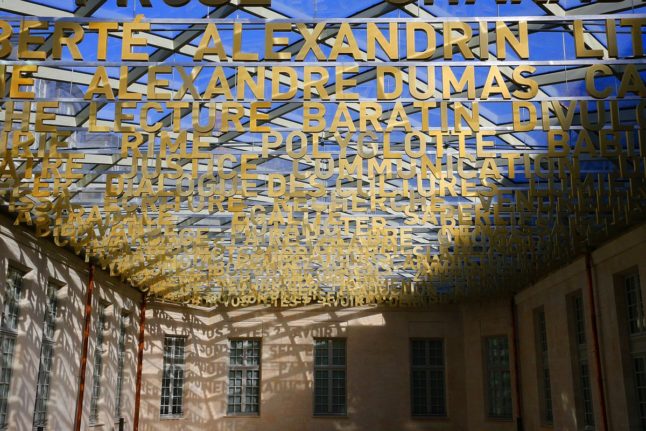France will soon open the doors to the brand new ‘Cité Internationale de la Langue Française’ located at the Château de Villers-Cotterêts in northern France – between Paris and Reims.
The Château is of symbolic importance to the French language, as it is where the French king François I signed an important edict establishing French – not Latin – as the administrative language for the kingdom in 1539.
Originally intended to open in mid-October, with French President Emmanuel Macron in attendance, the inauguration of the museum was delayed following the Islamist-inspired killing of a French school teacher in northern France.
The new opening is now scheduled for Wednesday, November 1st, following a €185 million revamp of the historic building.
What’s in the museum?
In the first permanent exhibit, visitors will be able to experience ‘L’aventure du français’ (The adventure of French), which will explore the ups and downs of the language, its history and evolution, how and where it is used today, as well as expressions and iconic songs that have shaped it.

The museum will offer 15 rooms, with over 150 items on display, including works of art, historic documents, as well as over 50 visual and sound exhibits, RTL’s culture journalist, Bernard Lehut, wrote.
The museum has also transformed the former courtyard of the Jeu de Paume into ‘a lexical sky’, with 90 words with giant letters suspended from a glass roof.
Future exhibits planned for 2024 include one on French-language songs that have become world-wide hits.
The symbolic nature of the Château
The Château was a favourite of King François I, who enjoyed hunting in the nearby Retz forest and over the years has witnessed many milestones of the French language – the poet François Rabelais stayed there, Molière presented his play ‘Tartuffe’, and the novelist Alexandre Dumas was born in the town of Villers-Cotterêts.
The castle went on to become a barracks for the Republican army during the Revolution in 1789, and from 1808 a workhouse where beggars were confined before becoming a retirement home in 1889. It remained an EHPAD until 2014.
The French government already has big plans for the site – it is due to host the Francophonie Summit, which will be held in France in autumn 2024, according to Le Figaro, citing the Elysée Palace.
France is notoriously protective of its language with laws specifying limits on the amount of non-French songs that can be played on the radio and banning English words or phrases in adverts, unless accompanied by a translation.
Practical details
Guests will have the option of self-guided tours, with “all tour content available in French, English and German”.
A free mobile app will also allow foreign visitors to have content translated into either Italian, Spanish, Chinese, Arabic, or Dutch. You can download the app here.
The hours of operation will be Tuesday to Sunday, 10am to 6:30pm. The standard rate for tickets for adults will be €9. Entrance will be free for EU citizens under 26 years of age, with discounts for pensioners, job-seekers and children.
The Chateau is accessible by car (off the A2) or by train, a roughly 10 minute walk from the Villers-Cotterêts station. The TER train takes around 45 minutes from Paris Gare du Nord.
Find more details on the museum’s website here.



 Please whitelist us to continue reading.
Please whitelist us to continue reading.
Member comments